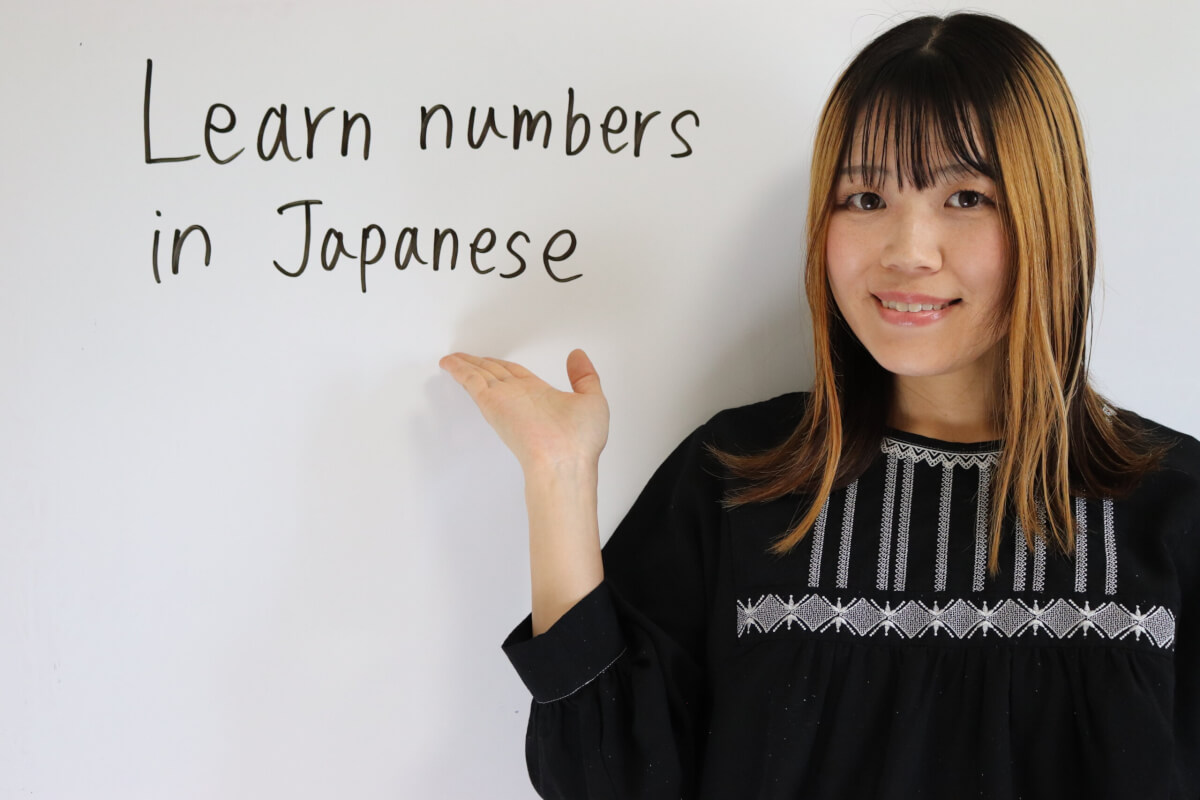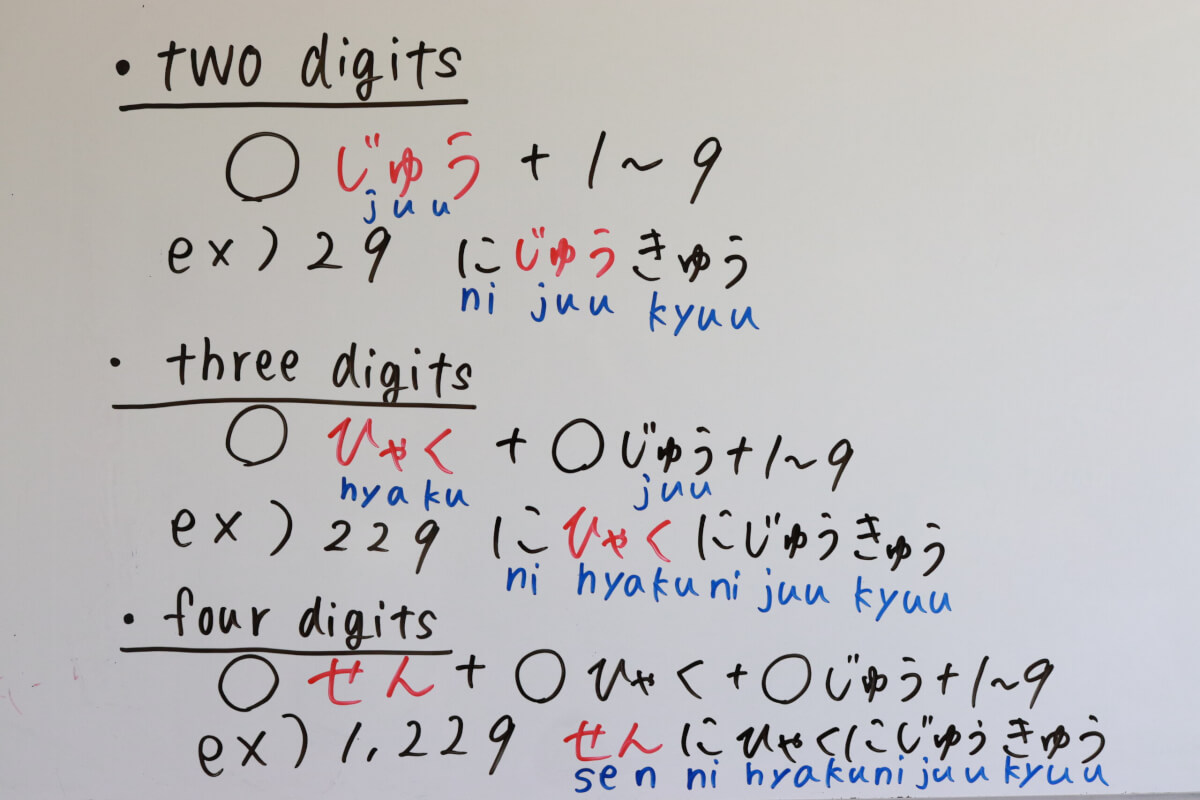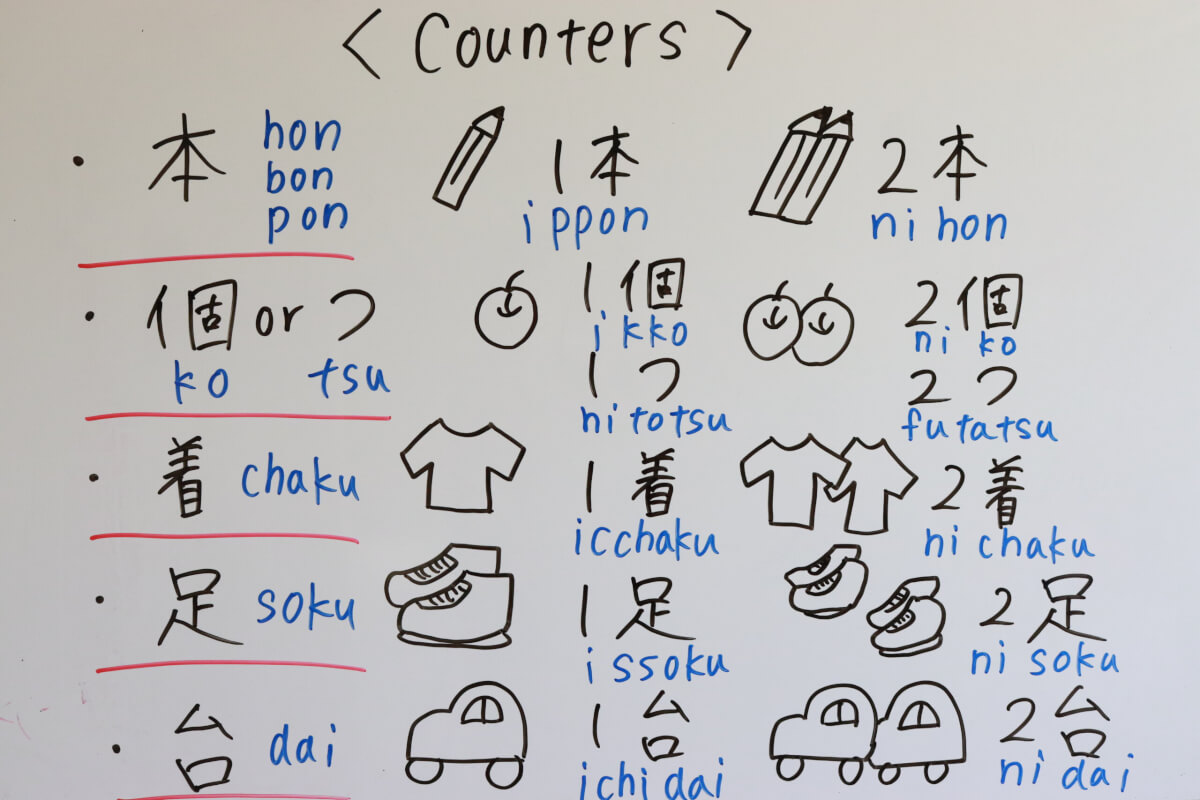- Release Date:
Learn numbers in Japanese

Learn how to say numbers in Japanese. It is important to know numbers in Japanese because without knowing numbers, it is difficult to understand dates, amounts of money, ages, etc in Japan. This is especially important for those who are going to live in Japan.
How to learn numbers in Japanese?
To learn numbers in Japanese, you should learn how to write in Kanji along with pronunciation.
Then, first you should be able to say 0 to 10. Then move on to two and three digits, but the basic rules are the same for larger numbers.
| Number | Kanji | Hiragana | Romaji |
|---|---|---|---|
| 0 | 零 or 〇 | ぜろ | zero |
| 1 | 一 | いち | ichi |
| 2 | 二 | に | ni |
| 3 | 三 | さん | san |
| 4 | 四 | し/よん | shi/yon |
| 5 | 五 | ご | go |
| 6 | 六 | ろく | roku |
| 7 | 七 | なな/しち | nana/shichi |
| 8 | 八 | はち | hachi |
| 9 | 九 | きゅう | kyuu |
| 10 | 十 | じゅう | juu |
| 100 | 百 | ひゃく | hyaku |
| 1,000 | 千 | せん | sen |
| 10,000 | 万 | まん | man |
| 100,000 | 十万 | じゅうまん | juu man |
| 1,000,000 | 百万 | ひゃくまん | hyaku man |
| 10,000,000 | 一千万 | いっせんまん | issen man |
| 100,000,000 | 億 | おく | oku |

To say a two-digit number, add "juu" to the numbers 1~9.
To say a three-digit number, add "hyaku" to the two-digit numbers and 1~9.
The same is done from 4-digit numbers, adding "sen" or "man" to three, two-digit numbers, and 1~9.
Japanese number in Kanji
In Japanese, Kanji(Chinese character) is often used to express numbers. The reason for this is that in the past, the Japanese language was based on writing sentences vertically. If you write Arabic numerals vertically, they are difficult to read and write, but you will notice that this is not so with numbers in Kanji.
We use Arabic numbers these days more often because they are written horizontally, but when we write an address on an envelope or books, we still use vertical writing. So it is important to know numbers in Kanji.
Idioms using numbers in Kanji
Also, Kanji numbers are used in Japanese idioms. For example, here are some idioms using the number “ichi”.
- the day before yesterday 一昨日 /ototoi/
- The year before last 一昨年 /ototoshi/
- General 一般 /ippan/
- World's best 世界一 /sekai ichi/
- One family 一家 /ikka/
There are many more, including idioms using other numbers. Of course, it is not necessary to know all of them, but it is good to know idioms using Kanji in terms of expanding your vocabulary.
What are Japanese counters?
In Japanese, there is a word called "counter", which is used to count things.
For example, when counting the number of bananas, the English word is “1 banana,” whereas, in Japanese, it is “banana ippon”.
This number changes depending on the item, so an apple would be “ikko”. In addition to food, clothes are counted as “icchaku”, shoes as “issoku”, and so on.
There are indeed hundreds of counters, but of course it is not necessary to know them all. Even Japanese people know only about 20 at most.
Here are five typical counters.

| Counters | Kanji | Hiragana | Romaji | Examples |
|---|---|---|---|---|
| For long and thin things(eg. banana) | 本 | ほん、ぽん、ぼん | hon, pon, bon | 1本 /ippon/ 2本 /ni hon/ 3本 /san bon |
| For small things | 個 or つ | こ or つ | ko, tsu | 1個 /ikko/, 1つ /hitotsu/ 2個 /niko/, 1つ /hitotsu/ 3個 /sanko/, 1つ /hitotsu/ |
| For clothes | 着 | ちゃく | chaku | 1着 /icchaku 2着 /ni chaku/ 3着 /san chaku |
| For shoes | 足 | そく | soku | 1足 /issoku/ 2足 /nisoku/ 3足 /sansoku/ |
| For cars | 台 | だい | dai | 1台 /ichidai/ 2台 /nidai/ 3台 /sandai/ |
